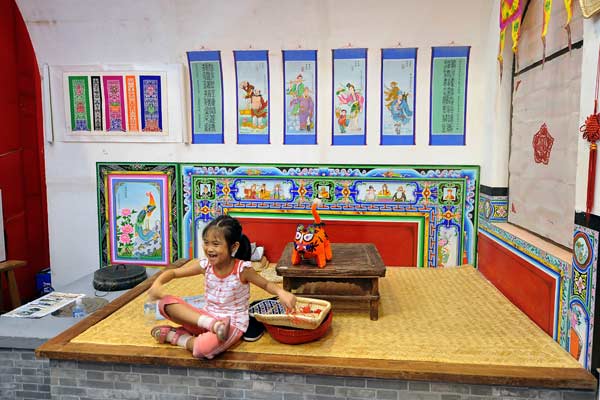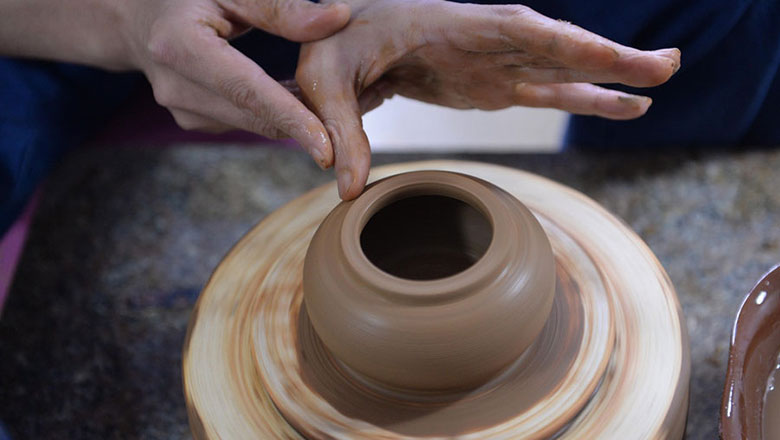Better stoves can reduce indoor pollution
Updated: 2015-01-16 08:14
By Bjorn Lomborg(China Daily)
|
||||||||
 |
|
A girl sit at a kang bed-stove, a heated bed commonly seen in northern China. |
Air quality has improved dramatically in rich countries over the past century. Yet air pollution is still a huge problem, especially in the developing world. It kills about 7 million people each year, accounting for one out of every eight deaths globally. But the most deadly air pollution comes from inside people's houses, because 2.8 billion people still use firewood, dung and coal for cooking and keeping warm, breathing polluted air inside their homes every day.
To people who don't live under these conditions, it is hard to imagine how polluted the indoor air is. The World Health Organization says outdoor air, for instance, in Beijing, New Delhi and Karachi is several times more polluted that the outdoor air in Berlin, London and Paris. But the typical indoor air in a developing country house with an open fire is many times more polluted than Beijing, New Delhi or Karachi. That is why indoor air pollution kills 4.3 million people each year, making it one of the world's leading causes of death. In China, more than 1 million people die each year from breathing the polluted air inside their homes.
Yet indoor air pollution is rarely among the big issues the world discusses. In 2000, the world made a number of smart, short promises for 2015 called the UN Millennium Development Goals, focusing on poverty, hunger, education and child mortality. They were mostly good promises, but indoor air pollution was missing.
Now, the world's 193 governments are discussing what targets to set for 2030, and there is a bewildering array of 169 proposed targets. While indoor and outdoor air pollution is now part of the targets, so is everything else. And with so many promises we have no priorities.
According to a new study for the Copenhagen Consensus, the simplest solution is to replace inefficient, smoky stoves by more efficient, less smoky ones. Providing 1.4 billion people with such improved stoves would save almost 450,000 lives a year and avoid almost 2.5 billion days of illness annually.
Moreover, more efficient stoves would on average save about 30 percent fuel, which translates into a savings of up to $57 per household per year, and at the same time make cooking more efficient and less time consuming. In total, the health and non-health benefits are estimated at $52 billion per year.
- Inspection teams to cover all of military in anti-corruption drive
- Tornado, heavy rain batters Central China's Hunan
- Beijing's five-year plan: Cut population, boost infrastructure
- Palace Museum discovers relics buried for over 600 years
- Disney promises ‘safe, pleasing service of high quality’
- Couple detained for selling their two sons
- Rousseff: Accusations against her 'untruthful'
- Almost one-sixth of Brazil's confirmed microcephaly cases linked to Zika
- Impeachment trial against Rousseff recommended to senate
- With nomination secured, Trump to aim all guns at Hillary Clinton
- Obama sips Flint water, urges children be tested for lead
- Massive protests against Abe mark Japan's Constitution Memorial Day

 Raging wildfire spreads to more areas in west Canada
Raging wildfire spreads to more areas in west Canada
 World's first rose museum to open in Beijing
World's first rose museum to open in Beijing
 Teapot craftsman makes innovation, passes down techniques
Teapot craftsman makes innovation, passes down techniques
 Top 8 iOS apps recommend for mothers
Top 8 iOS apps recommend for mothers
 Five things you may not know about the Start of Summer
Five things you may not know about the Start of Summer
 Art imagines celebrities as seniors
Art imagines celebrities as seniors
 Japanese animator Miyazaki's shop a big hit in Shanghai
Japanese animator Miyazaki's shop a big hit in Shanghai
 Star Wars Day celebrated around world
Star Wars Day celebrated around world
Most Viewed
Editor's Picks

|

|

|

|

|

|
Today's Top News
Liang avoids jail in shooting death
China's finance minister addresses ratings downgrade
Duke alumni visit Chinese Embassy
Marriott unlikely to top Anbang offer for Starwood: Observers
Chinese biopharma debuts on Nasdaq
What ends Jeb Bush's White House hopes
Investigation for Nicolas's campaign
Will US-ASEAN meeting be good for region?
US Weekly

|

|









